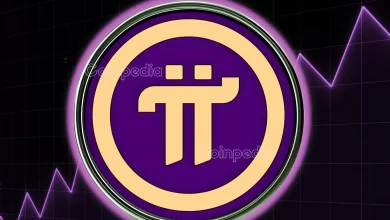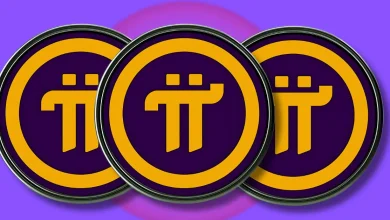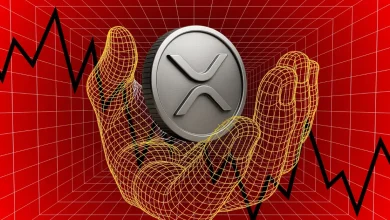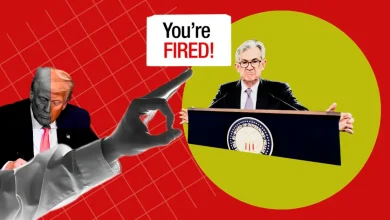SEC Employee Slams Gary Gensler’s Regulatory Regime in US: “We Are Shooting Ourselves in the Foot”
The crypto industry is currently in a state of anticipation as it awaits a resolution in the prolonged legal battle between XRP and the SEC. The outcome of this case will likely have far-reaching implications for the industry as a whole. At a recent Financial Times conference, as reported by Reuters, Hester Peirce, a commissioner at the U.S. Securities and Exchange Commission, expressed her pessimism regarding the current regulatory framework in the United States.
According to Peirce, there is unlikely to be any clear and definitive regulatory guidance for the crypto industry in the near future. Peirce has been a vocal opponent of the SEC’s enforcement actions and has publicly criticized the stance of SEC Chair gary gensler

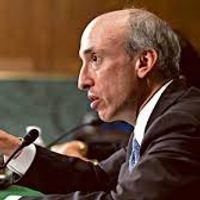 gary gensler Gary Gensler is the chairman of the U.S. Securities and Exchange Commission (SEC). His studies in finance and blockchain at MIT have helped him develop U.S. cryptocurrency regulations and policies.
Quick Facts Full name Gary Scott Gensler Birth 18-10-1957, Baltimore, Maryland, United States Nationality American Education MBA from the University of Pennsylvania Marital status Married to Francesca Danieli (1986-2006) Net worth Estimated $100 million
Gensler has advocated for enhanced supervision of digital assets, seeking to regulate cryptocurrencies similar to securities. His work at the SEC has focused on safeguarding investors, regulating crypto exchanges, and establishing stablecoin policies.
Gary Gensler - Career Highlights 1997 – Became Assistant Secretary of the Treasury.
2009 – Led CFTC, regulating financial derivatives post-2008 crisis.
2018 – Taught blockchain and crypto at MIT.
2021 – Appointed SEC Chairman, focusing on crypto regulations.
2022 – Proposed stricter rules for crypto exchanges.
2023 – Took legal action against major crypto firms.
2024 – Advocated for stronger stablecoin and DeFi regulations.
Gary has collaborated with multiple lawmakers in formulating crypto policies. Even with disagreements with crypto investors regarding crypto policies, he continues to be a key player in the changing dynamic between regulatory frameworks and blockchain advancement.
Awards & Recognitions of Gary Gensler Year Institution Description 2009 U.S. Treasury Financial Regulation Leader 2018 MIT Blockchain & Crypto Educator 2021 SEC SEC Chairman Overseeing Crypto Policies 2023 Bloomberg Most Influential Regulator in Crypto 2024 Forbes Top Policy Maker in Digital Assets
Useful Links to Connect With Gary Gensler Platform Link X (formerly Twitter) twitter.com/GaryGensler CFTC website Chairman Gary Gensler Chairman on numerous occasions.
gary gensler Gary Gensler is the chairman of the U.S. Securities and Exchange Commission (SEC). His studies in finance and blockchain at MIT have helped him develop U.S. cryptocurrency regulations and policies.
Quick Facts Full name Gary Scott Gensler Birth 18-10-1957, Baltimore, Maryland, United States Nationality American Education MBA from the University of Pennsylvania Marital status Married to Francesca Danieli (1986-2006) Net worth Estimated $100 million
Gensler has advocated for enhanced supervision of digital assets, seeking to regulate cryptocurrencies similar to securities. His work at the SEC has focused on safeguarding investors, regulating crypto exchanges, and establishing stablecoin policies.
Gary Gensler - Career Highlights 1997 – Became Assistant Secretary of the Treasury.
2009 – Led CFTC, regulating financial derivatives post-2008 crisis.
2018 – Taught blockchain and crypto at MIT.
2021 – Appointed SEC Chairman, focusing on crypto regulations.
2022 – Proposed stricter rules for crypto exchanges.
2023 – Took legal action against major crypto firms.
2024 – Advocated for stronger stablecoin and DeFi regulations.
Gary has collaborated with multiple lawmakers in formulating crypto policies. Even with disagreements with crypto investors regarding crypto policies, he continues to be a key player in the changing dynamic between regulatory frameworks and blockchain advancement.
Awards & Recognitions of Gary Gensler Year Institution Description 2009 U.S. Treasury Financial Regulation Leader 2018 MIT Blockchain & Crypto Educator 2021 SEC SEC Chairman Overseeing Crypto Policies 2023 Bloomberg Most Influential Regulator in Crypto 2024 Forbes Top Policy Maker in Digital Assets
Useful Links to Connect With Gary Gensler Platform Link X (formerly Twitter) twitter.com/GaryGensler CFTC website Chairman Gary Gensler Chairman on numerous occasions.
“If we built a good regulatory regime, people would come. I think you will see that with MiCA. We are shooting ourselves in the foot by not having a regulatory regime in the U.S.,” Peirce said.
After the SEC’s announcement on April 14 that it intends to broaden the definition of ‘exchange’ to include decentralized finance (DeFi) platforms trading cryptocurrencies, Peirce issued a statement in response. Titled “Rendering Innovation Kaput,” Peirce’s statement was critical of the SEC’s proposal, citing concerns that it could stifle innovation in the crypto industry.
Also Read: Ripple News : Why XRP Wasn’t Registered? Ripple CEO Garlinghouse Speaks Out
“Stagnation, centralization, expatriation, and extinction are the watchwords of this release. Rather than embracing the promise of new technology as we have done in the past, here we propose to embrace stagnation, force centralization, urge expatriation, and welcome the extinction of new technology. Accordingly, I dissent,” she wrote.
Peirce has also expressed her admiration for the European Union’s swift development of its digital finance package. On April 20, the European Parliament approved the Markets in Crypto-Assets (MiCA) regulation, which provides a regulatory framework for the cryptocurrency industry in the European Union. The new legislation will bring the issuance of cryptocurrencies under institutional regulation and create a uniform regime for crypto-asset service providers across EU member states.



